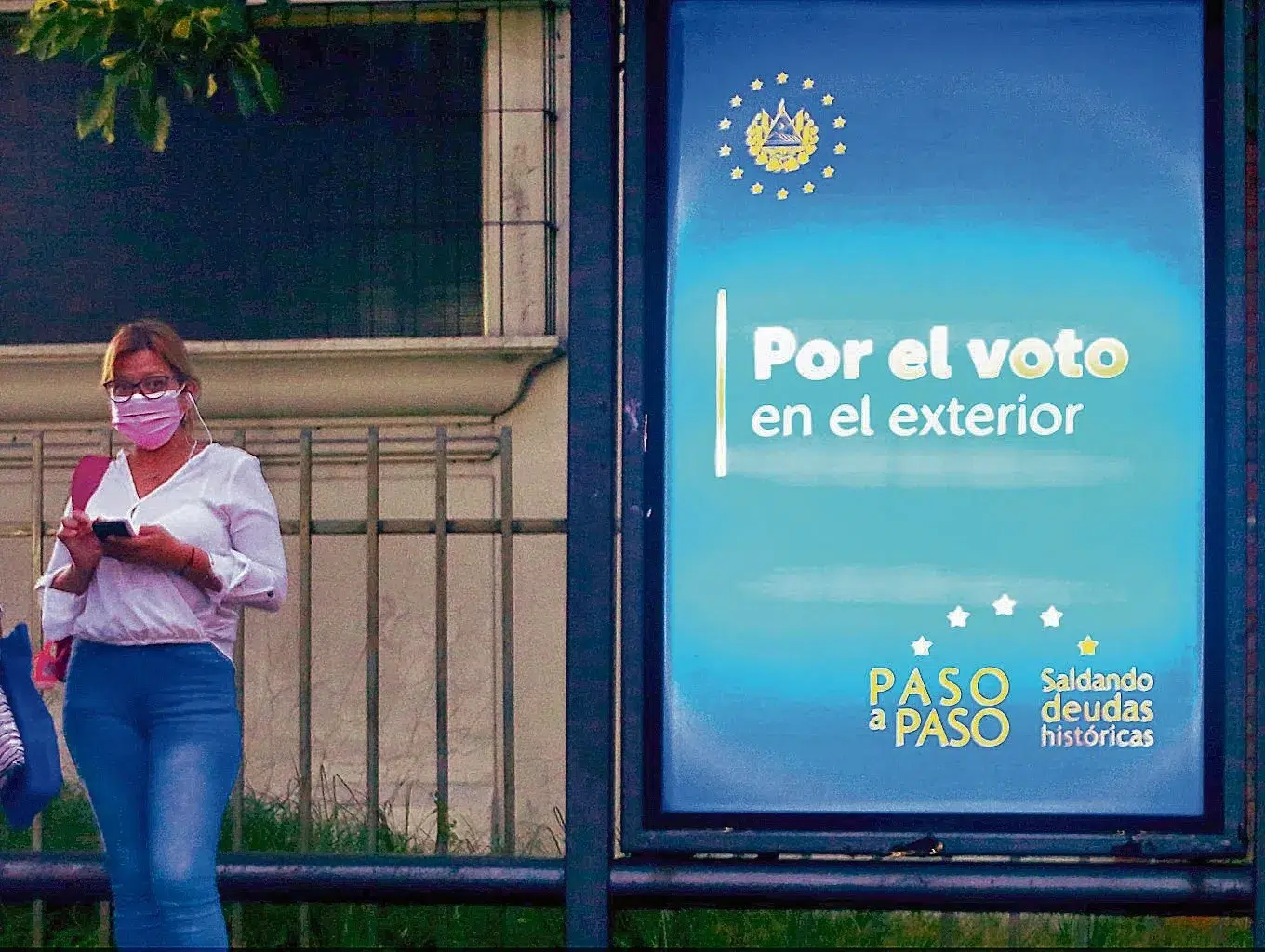Magistrates of the Supreme Electoral Tribunal (TSE) warn that the new special law on suffrage abroad proposed by Nuevas Ideas does not grant powers to the collegiate entity to audit the electronic voting system on the Internet; the only modality that will be applied in the 2024 elections for Salvadorans abroad.
The TSE presented to the electoral reform commission of the Legislative Assembly a legal analysis with at least eight observations on the application of the new regulations through the technician and judicial director of the organization, Óscar Rivera Morales.
Among the main points made by the technician is the lack of a provision that expressly empowers the EHIC to audit the electronic voting system on the Internet.
According to article 11 of the regulations, he explained, the TSE is obliged to “contract an electronic voting system that guarantees Salvadoran citizens abroad the exercise of their vote in a reliable, safe, personal, auditable, unique, secret and transparent way.”
But, in his opinion, Rivera pointed out that “although it is said that the system must be auditable, it does not expressly say that the TSE, as the responsible entity, carries out a prior audit to ensure the conditions of the system.”
TSE dice nueva ley de voto en el exterior no le permite auditar
Magistrados del Tribunal Supremo Electoral (TSE) advierten que la nueva ley especial de sufragio en el extranjero propuesta por Nuevas Ideas no le otorga facultades al ente colegiado para auditar el sistema de voto electrónico por internet, la única modalidad que se aplicará en las elecciones de 2024 para los salvadoreños en el exterior.
El TSE presentó ante la comisión de reformas electorales de la Asamblea Legislativa un análisis jurídico con al menos ocho observaciones sobre la aplicación de la nueva normativa, a través del técnico y director jurisdiccional del organismo, Óscar Rivera Morales.
Entre los principales señalamientos hechos por el técnico está la falta de una disposición que faculte expresamente al TSE para auditar el sistema del voto electrónico por internet.
De acuerdo al artículo 11 de la normativa, expuso, se obliga al TSE a “contratar un sistema de votación electrónica que garantice a los ciudadanos salvadoreños en el extranjero el ejercicio de su voto de manera confiable, segura, personal, auditable, única, secreta y transparente”.
Pero, a su criterio, Rivera apuntó que “aunque se dice que el sistema debe ser auditable, no dice de manera expresa que el TSE, como entidad responsable, realice una auditoría previa para asegurar las condiciones del sistema”.

